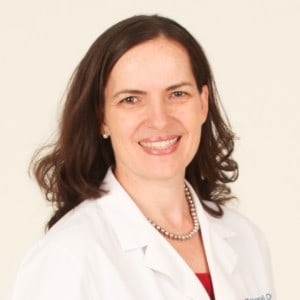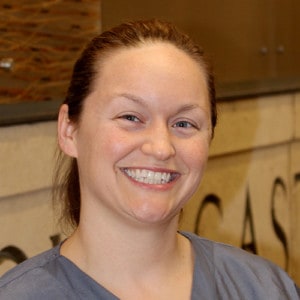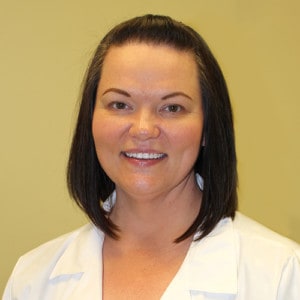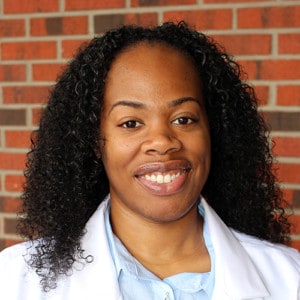Home births with no pain medications allowed is a pretty common assumption people make about how midwives deliver babies.
The six Certified Nurse Midwives (CNM) at Regional One Health have heard that and much more, honestly. But more than 94 percent of Certified Nurse Midwife-attended births in the U.S. actually occur in a hospital, including here at Regional One Health where an estimated 350 deliveries with a CNM will occur this year. Regional One Health is the only hospital in Shelby County where expectant mothers can deliver a baby with the assistance of a Certified Nurse Midwife.
It’s not for everyone, although that might be because not everyone understands the role of a Certified Nurse Midwife. Any expectant mother experiencing a low-risk pregnancy who plans to deliver at Regional One Health can use a nurse midwife.

“A lot of midwives who do deliveries at home are Certified Professional Midwives. We’re Certified Nurse Midwives and it’s totally different training,” Meghan Madea, CNM, MSN.
“You could ask the average person on the street about what we do and they might say midwives deliver babies at home,” said Meghan Madea, CNM, MSN. “It’s true, but a lot of midwives who do deliveries at home are Certified Professional Midwives. We’re Certified Nurse Midwives and it’s totally different training. We’re apples and oranges other than the fact we deliver babies. That’s the No. 1 misconception in Memphis.”
Certified Nurse Midwives are defined as primary care providers under federal law, and have prescriptive authority across the U.S. The six Regional One Health Certified Nurse Midwives see patients at the Hollywood and South Third primary care clinics Monday through Friday for low-risk obstetrics and well-woman primary care. They deliver babies at Regional One Health, the only hospital in Memphis that staffs Certified Nurse Midwives as part of its OB/GYN team.
But there are plenty of misconceptions about what nurse midwives actually do.
If I work with a midwife, I won’t have the opportunity to use an epidural.
False. Certified Nurse Midwives have prescriptive authority, meaning if a patient wants pain medication it’s possible.

“You as the patient have the voice. We say these are the options, but you don’t have to accept these options,” Amanda Williams, CNM.
“The first thing they ask is if it’s OK to have an epidural or an induction,” said Amanda Williams, CNM. “I say you’re in America and you get the full range of care. It’s patient-driven care. We have a conversation instead of it an edict. You as the patient have the voice. We say these are the options, but you don’t have to accept these options.”
For some patients, the mere presence of a midwife in the delivery room is pain relief. Midwives provide continuous one-on-one care for patients. That includes support, coaching, reassurance or a gentle massage. And, yes, it also includes an epidural if that’s what the patient wants.
You deliver in the hospital but don’t have a working relationship with the physicians.
False. The Certified Nurse Midwives have a close working relationship with the physicians at Regional One Health. Expectant mothers who work with nurse midwives at Regional One Health are low risk. But the doctors are here to provide support if an emergency situation comes up, or if a C-section becomes necessary.
“Birth is unpredictable and if anything goes wrong these are the baby doctors and OB/GYN doctors you want taking care of you,” Madea said. “Not everyone is in a high-risk situation. We’re here to support them and give them a great experience.”
Physicians are available for consultation purposes or if a patient becomes high risk. Doctors, nurses and staff are aware of every patient’s situation so they can quickly move in if an emergency arises.
I won’t have any say in the direction of my labor experience.
False. The Certified Nurse Midwives at Regional One Health work with patients to ensure their hopes for the labor and delivery experience are met. Midwives are open to a range of desired birth preferences in a hospital setting that makes the patient more comfortable.

“If they want to be in a shower or go without medication, we’re trained to help support them,” Edna Tucker, MSN, CNM.
“If they want to be in a shower or go without medication, we’re trained to help support them,” said Edna Tucker, MSN, CNM. “We’ve had dads help deliver babies. We guide them. That’s fun if they want to do that. … Some patients think this is what we’ve always done and you have to do delivery this way but you really don’t. If you want to stand or lie down, it doesn’t matter.”
Once I have the baby I’ll no longer work with a midwife.
False. That’s the patient’s decision, but Certified Nurse Midwives work with women through all stages of life. It doesn’t just start with pregnancy. In fact, Certified Nurse Midwives at Regional One Health will see female patients beginning in early teenage years up through menopause and geriatric care. Certified Nurse Midwives provide well-woman care, birth control, preconception care, annual examinations, gynecological examinations, breastfeeding education, postpartum care and more.
Davin Johnson, MSN, CNM, said she’s had a few patients surprised when she walks in the room, assuming they must be pregnant.

“Patients hear midwife and think of home birth midwives, but we offer pap smears, STD testing and well-woman checks too,” Davin Johnson, MSN, CNM.
“Patients don’t always think of us as health care providers. They hear midwife and think of home birth midwives, but we offer pap smears, STD testing and well-woman checks, too,” Johnson said.
Nurse midwives are primary care providers and a friend to the patient.
True. The Regional One Health Certified Nurse Midwives have a longer lasting, personal relationship with patients.
“I don’t have to look at a chart when I walk in the room to know the person,” Madea said.
“Our approach to women’s care is from a nursing perspective, a bedside nursing perspective. We meet patients on their level. We ask about their family and get to know them personally and take time with them,” Tucker added.
Relationships really do matter to Certified Nurse Midwives at Regional One Health.
“We provide that relationship that helps women transition into motherhood,” Williams said. “Midwives provide that holistic experience. It’s making sure socially, psychologically and physically they are ready for birth and beyond.”
You can schedule an appointment with a midwife today by calling 901-545-6969.
This is part of an occasional series about misconceptions in health care. Do you have a health care issue you’re interested in seeing us cover? Let us know at communications@regionalonehealth.org.